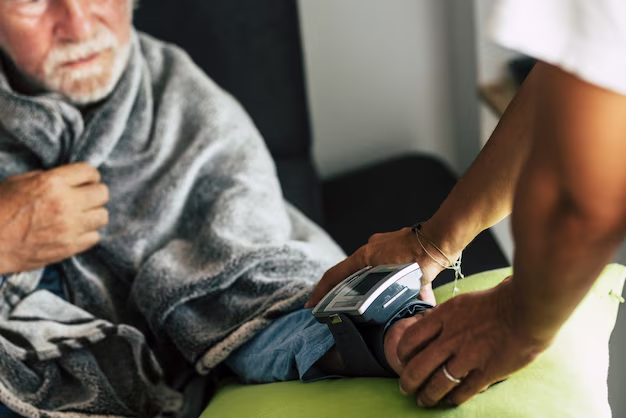Does Medicaid Provide Coverage for Rehab? Understanding Your Options
Navigating the world of healthcare coverage can feel overwhelming, especially when it comes to understanding the specifics of insurance like Medicaid. One area where clarity is often needed is whether Medicaid covers rehabilitation services. With the rising awareness and need for treatment related to addiction and substance use disorders, asking the right questions on this topic is crucial. Let's explore the intricate details to understand what Medicaid generally offers.
🌟 Understanding Medicaid's Role in Rehab Coverage
Medicaid is a state and federal program that provides health coverage to eligible individuals, including low-income adults, children, pregnant women, elderly adults, and people with disabilities. Thanks to the Affordable Care Act, Medicaid has expanded in many states to cover more individuals, including those seeking addiction treatment services. But how does this translate to coverage for rehabilitation?
Medicaid's General Approach to Rehabilitation
Medicaid is committed to supporting various health services, and rehabilitation is typically one of those covered areas. This includes inpatient and outpatient services, medically necessary treatments, and sometimes even alternative therapies. However, the specifics can vary from state to state, as Medicaid is administered at the state level.
Inpatient vs. Outpatient Services
When it comes to rehab, there are two primary types: inpatient (residential) and outpatient.
- Inpatient rehab involves staying at a facility, receiving 24/7 care which might be necessary for severe addiction cases.
- Outpatient rehab allows individuals to maintain their daily routines while attending regular sessions at a facility.
Each state Medicaid program might have different rules about which types of rehab services are covered and for how long.
📃 What to Expect: Services Commonly Covered by Medicaid
Medicaid often covers a range of services aimed at aiding recovery from substance use disorders. These can include:
- Detoxification: Initial treatment phase to manage withdrawal symptoms.
- Counseling and Therapy: Both one-on-one and group sessions.
- Medication-Assisted Treatment (MAT): Combines medications like methadone with counseling.
- Follow-up Programs: Aftercare services to support long-term recovery.
State-Specific Variations
It's important to note that coverage specifics can differ depending on your location. State-specific variations mean that:
- Some states might cover additional services, like alternative therapies such as acupuncture or yoga.
- The extent of coverage, including duration and frequency of services, may vary.
An essential part of the process is checking your state's specific Medicaid guidelines to get precise information.
🌐 Expanding Perspectives: Related Considerations
Understanding coverage is just the beginning. Here are other factors to consider:
Eligibility for Medicaid
Eligibility criteria for Medicaid can vary, but generally, individuals must demonstrate financial need and residency in a state where they are applying. Thanks to Medicaid expansion in several states, the eligibility horizon broadened, allowing more individuals, particularly adults without dependent children, to qualify.
Pre-Authorization Requirements
Some services may require pre-authorization or prior approval before coverage kicks in. This process ensures that the requested service is necessary for the patient's health. It is usually the responsibility of healthcare providers to help navigate this process, but staying informed is beneficial.
Network Providers
Medicaid typically works with a network of providers. Choosing a provider within this network is crucial to ensure coverage for the services. Confirm with your provider whether they accept Medicaid and if they are part of the network for the services you need.
📝 Practical Tips for Navigating Rehab Coverage
Here are some actionable steps to take if you're seeking rehab services covered by Medicaid:
- Contact Your Local Medicaid Office: Obtain specific details about what rehab services are covered in your state.
- Speak with a Healthcare Provider: They can give insight into what types of rehab might be best for you and what might be covered under Medicaid.
- Prioritize Network Facilities: Ensure the rehab facilities or centers accept Medicaid.
- Check for Pre-Authorization Needs: Understand if any part of your treatment requires prior approval for coverage.
🔍 Additional Support and Resources
Beyond the coverage specifics, various resources can aid in your recovery journey.
National Helplines and Support Networks
- Substance Abuse and Mental Health Services Administration (SAMHSA): They offer confidential and free treatment referral and information services.
🌟 Summary Table: Key Takeaways for Medicaid Rehab Coverage
| Topic | Key Point |
|---|---|
| Eligibility | Varies by income, state residency, and other factors |
| Covered Services | Detox, therapy, MAT, aftercare, varies by state |
| Types of Rehab | Inpatient vs. outpatient, coverage varies |
| Pre-Authorization | May be required, check specifics with providers |
| Provider Networks | Use in-network providers for coverage clarity |
| State-Specific Variations | Coverage and service details can vary by state |
| Practical Steps | Contact Medicaid office, check network status |
Each individual's journey with Medicaid and rehab is unique. By engaging deeply with both your state's Medicaid program and available resources, you can enhance your understanding and access the support needed for a successful recovery path.
In sum, while Medicaid does provide a pathway to cover rehab services, the journey requires navigating through specific requirements and variations that accompany each state. Embrace this information as a stepping stone towards treatment exploration, confident that support is accessible and ready to assist your recovery process.

Related Topics
- A/r Medicaid
- Am I Eligible For Medicaid
- Am I Qualified For Medicaid
- Are Illegal Aliens Eligible For Medicaid
- Are Illegal Immigrants Eligible For Medicaid
- Are Medicaid Payments Frozen
- Are Medicare And Medicaid Social Insurance
- Are My Children Eligible For Medicaid
- Are Trusts Exempted From Ssi And Medicaid
- Are Undocumented Immigrants Eligible For Medicaid
